Uncategorized
-
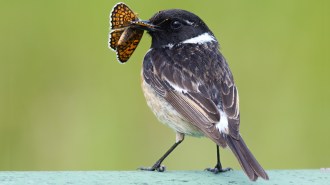 Animals
AnimalsIs camouflage better than warning colors? For insects, it depends
The effectiveness of camouflage or warning colors for insect defense depends on conditions such as light levels and how many predators are around.
By Jake Buehler -
 Psychology
PsychologyStriking moments make previous memories stronger
Emotional events help solidify memories. The findings may one day help students study or trauma survivors recover.
By Sujata Gupta -
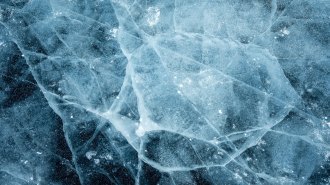 Physics
PhysicsIce is more flexible than you think, a new nano-movie shows
Scientists have filmed nanoscale ice crystals adapting to trapped air bubbles without losing structural integrity.
-
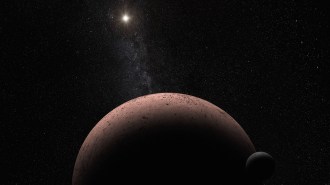 Planetary Science
Planetary ScienceDwarf planet Makemake sports the most remote gas in the solar system
The methane gas may constitute a rarefied atmosphere, or it may come from erupting plumes on Makemake’s surface.
By Ken Croswell -
 Earth
EarthTwo of Greece’s most dangerous volcanoes share an underground link
Seismic and land deformation data show that Santorini and Kolumbo draw from the same magma source, complicating eruption forecasts.
-
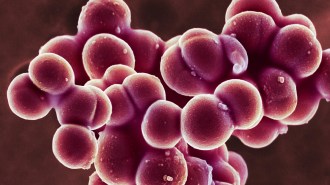 Microbes
MicrobesStaph bacteria are bad at letting go
Calcium, a mineral involved in wound healing, can strengthen the attachment between microbe and skin and make infections hard to shake.
-
 Health & Medicine
Health & MedicineWith little proof, Trump links Tylenol to autism and touts a treatment
The FDA plans to add a warning to Tylenol’s label and OK use of a drug for autism. Researchers say there’s little data to support either move.
- Space
This black hole flipped its magnetic field
Event Horizon Telescope data reveal the magnetic field around M87* shifted, weakened and then flipped, defying theoretical expectations.
-
 Tech
TechThis experimental computer chip reuses energy
A first-of-its-kind test shows that reusing energy within a computer chip can work, thanks to two techy tricks.
-
 Animals
AnimalsThis ‘ghost shark’ has teeth on its forehead
Spotted ratfish, or “ghost sharks,” have forehead teeth that help them grasp onto mates. It’s the first time teeth have been found outside of a mouth.
By Meghan Rosen -
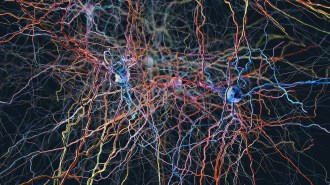 Neuroscience
NeuroscienceLung cancer plugs into the mouse brain
Exploring the relationship between cancer cells and nerve cells, which can signal tumors to grow, could unearth ways to slow disease.
-
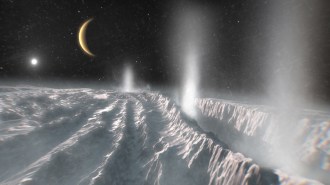 Planetary Science
Planetary ScienceEnceladus’ ocean may not have produced precursor chemicals for life
Building blocks of life have been found on this moon of Saturn. They may come from chemical reactions beyond Enceladus’ possible life-supporting ocean.